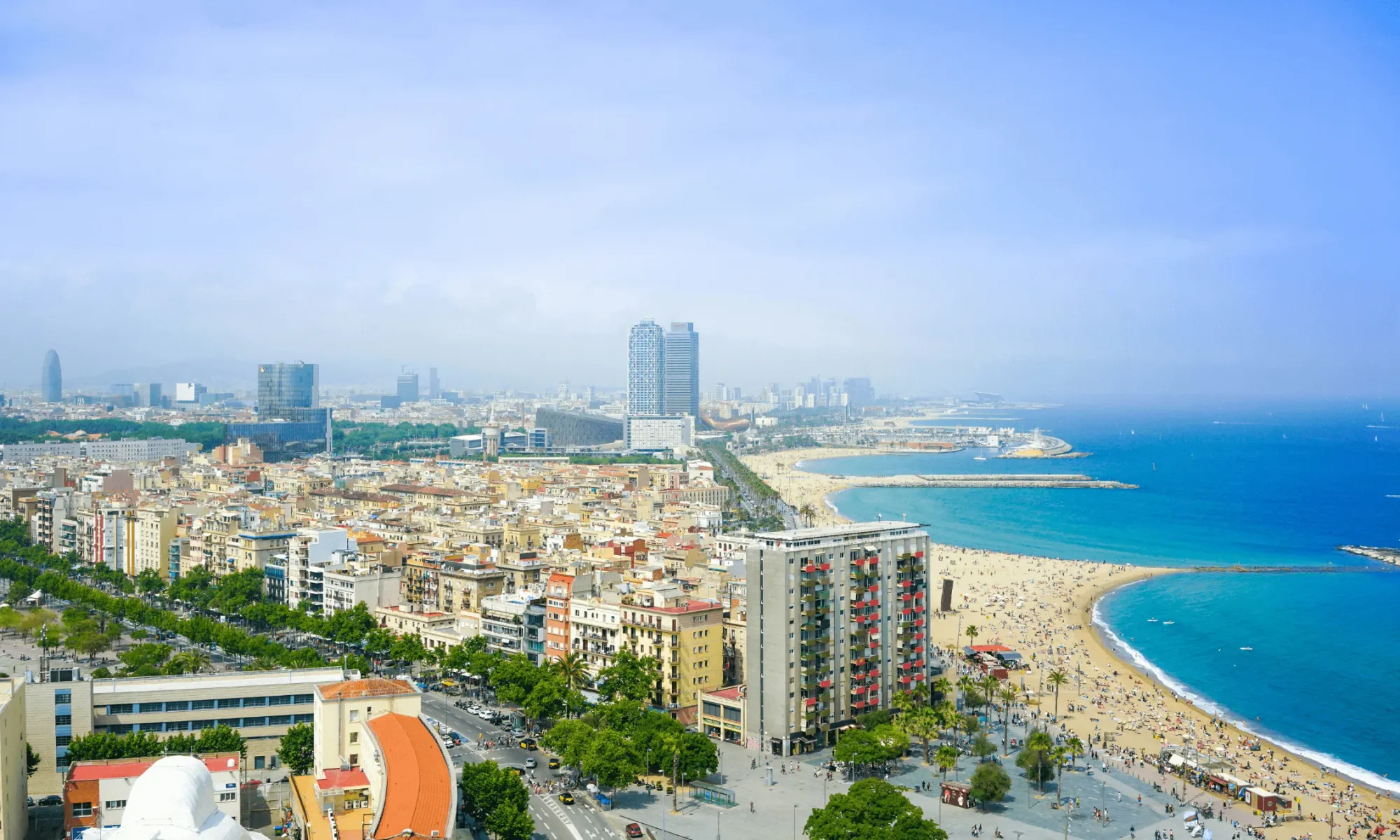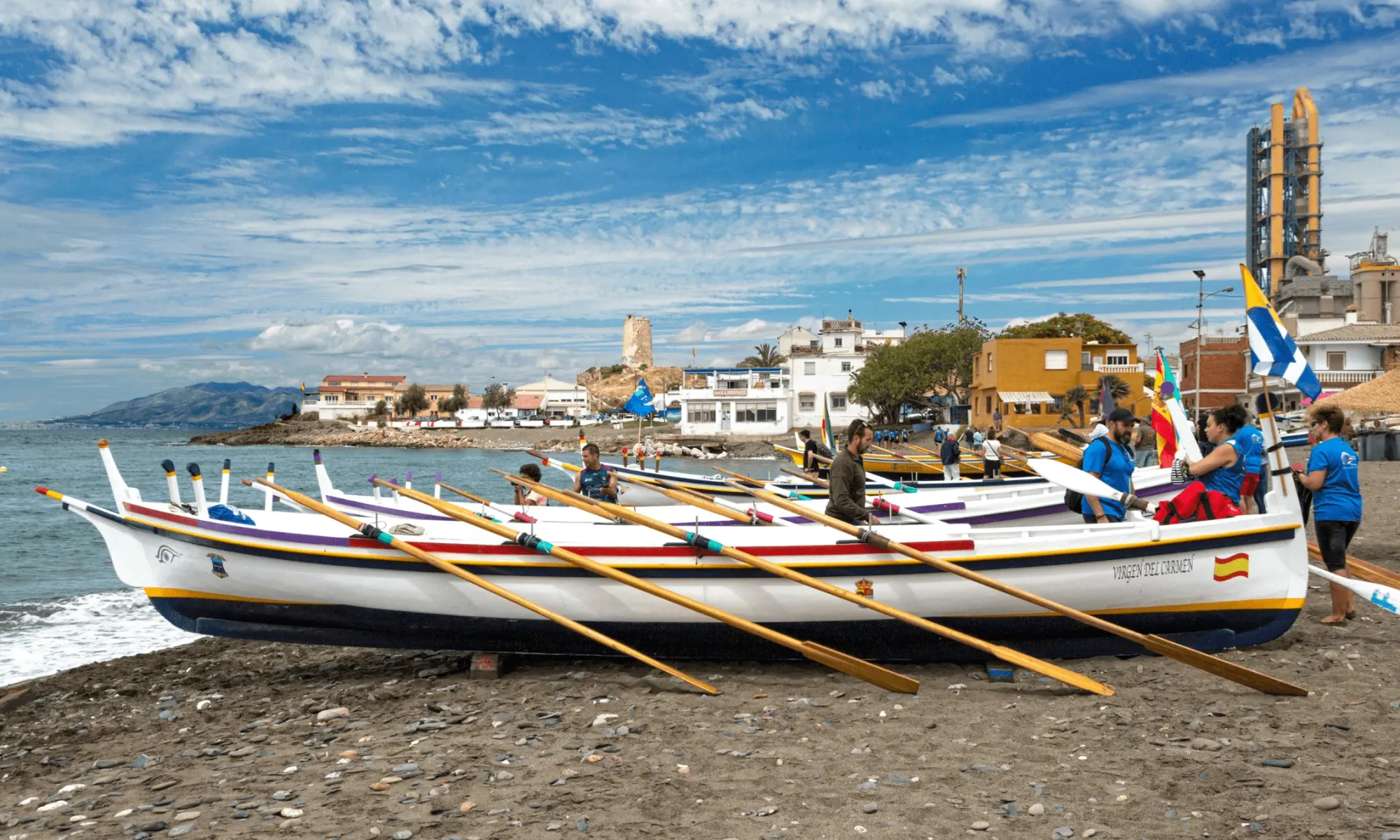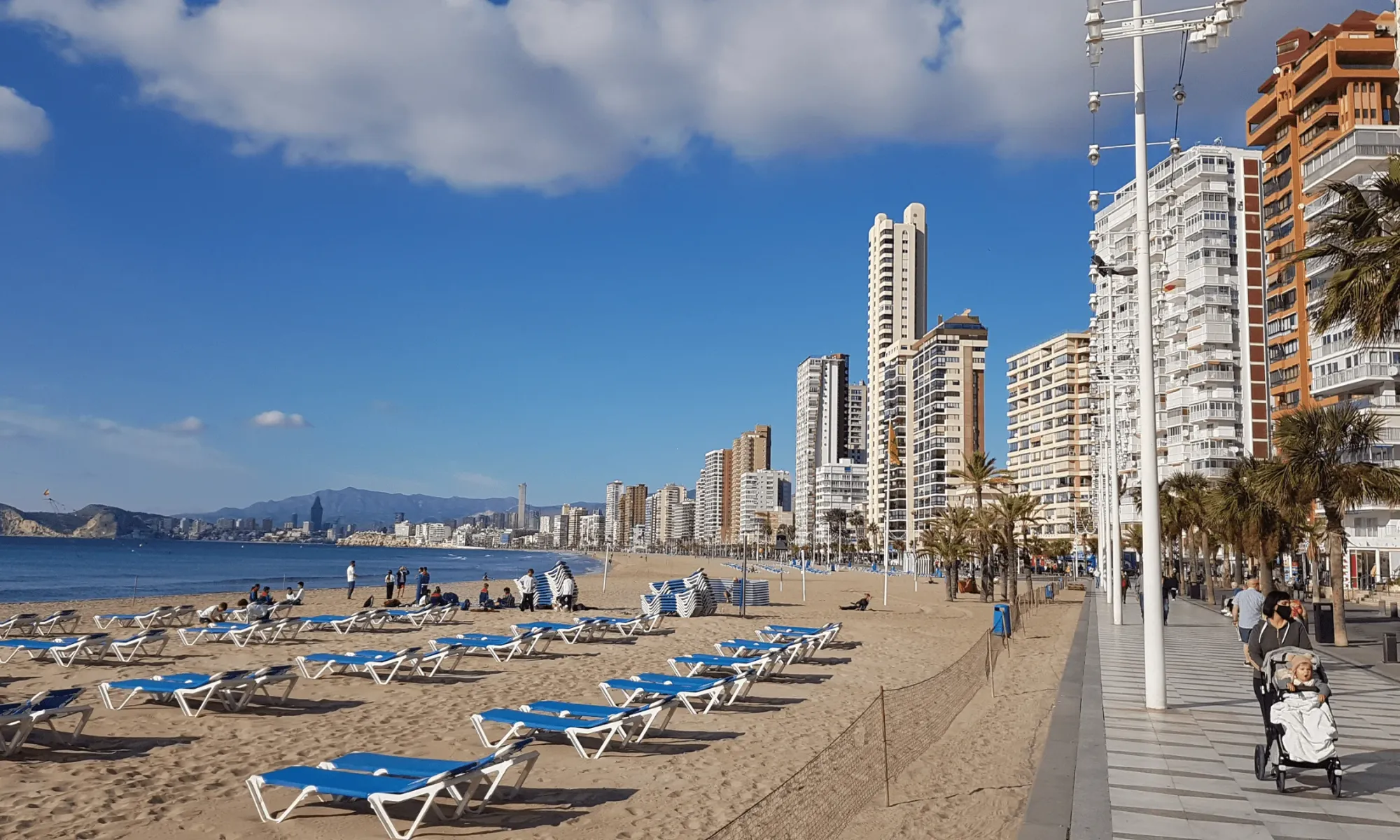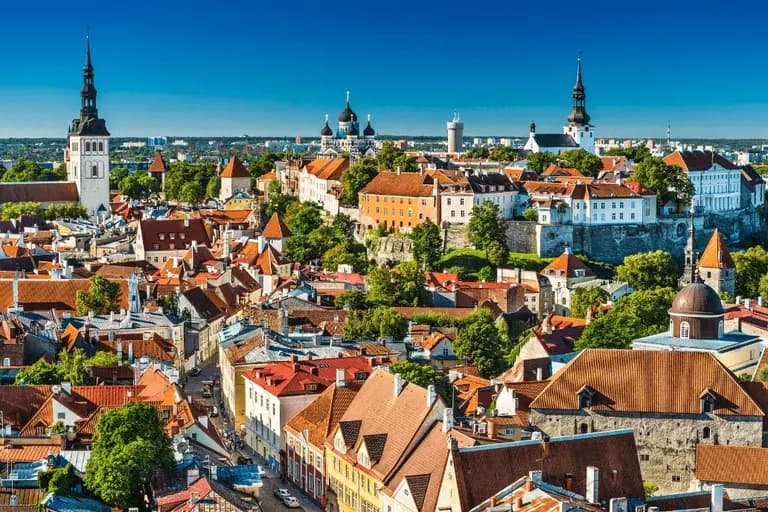The Best Places for Digital Nomads in Spain
Discover why Spain is a top country for remote workers and the best Spanish destinations for culture, internet speeds, and a low cost of living.


Do not miss out on the chance to visit Spain as a digital nomad. If you’re a remote worker, there’s no way the thought of working from the beach whilst sipping sangria in Barcelona or Tenerife hasn’t crossed your mind, and I’m here to tell you that the Spanish experience is even better than what you’re imagining.
After the launch of Spain’s digital nomad visa, the country has seen an influx of people looking to find a European home base while working remotely.
In this post, you'll find a list of the top places for digital nomads in Spain. Although we’ve included some of the more popular Spanish cities for remote workers, you’ll also find a few hidden gems that really should be on your to-visit list. Just remember to be respectful when you get there!
1. Barcelona

Barcelona is the intersection of tech, beach, and city. The Catalan capital has more or less perfected work-life balance. You can go from holding meetings in your favorite co-working office to sipping sangria on the beach in literally minutes.
The city has a very international scene making it easy to build a community without losing out on a true Spanish experience. You can also expect some quick internet speeds and the largest selection of remote-work space options in the whole of Spain. The cost of living has been steadily rising but you can find city-center apartments for €1,300/month with total monthly living costs of around €2,000 - €3,000.
2. Madrid

Madrid is a great base for any first-time digital nomads or those who have never visited Spain before. It has absolutely everything you need. Think countless co-working spaces, the fastest internet in Spain, and good public transport, as well as anything you could want: amazing nightlife, a huge expat community, totally unique architecture, and world-class museums.
Madrid is also centrally located, making it easy to use it as a home base as you explore the rest of Spain. Being the country's capital, it’s no surprise that prices are on the higher end for Spain. You can get by on a budget of €1,500/month, but a mid-tier lifestyle has a monthly allowance of €2,500 - €3,500.
3. Valencia

If you’re looking for a relaxed city with 300 days of sunshine a year, that’s a little less busy, touristy, and expensive than Spain’s other major hubs, then Valencia is calling your name. For €700-€1,500 a month in rent, you can live in a beautiful apartment that’s close to the beach, parks, and some really cool museums.
Valencia oozes easygoing Mediterranean vibes and thanks to the buzzing digital nomad community, you’ll find some really cool co-working spaces like Wayco and Flying Bean Coffee. It’s also the birthplace of paella so you know the food is going to be next level.
4. Canary Islands

Who doesn’t want to work remotely from an island? The Canary Islands are warm year-round and let’s be real, look like paradise. The cost of living is lower than you’d expect: a one-bed apartment runs you around €500 - €700 and you can live comfortably for less than €2,000 a month. As expected, the internet is considerably faster on the more populated islands but is still reliable on even the more remote locations.
The archipelago has 7 main islands to choose from and a surprisingly large digital nomad presence. Corralejo and El Cotillo in Fuerteventura are great for surfers, Las Palmas in Gran Canaria is the largest city with an established digital nomad community, Santa Cruz de Tenerife in Tenerife is another major hub and finally Lanzarote with its stunning beaches.
5. Málaga

Málaga is on Spain’s South coast which means beautiful weather is essentially guaranteed. It’s smaller than Valencia and Seville but still has a great community of remote workers and all the normal perks of living in a city. You can find cool co-working spots like The Living Room Co-Working and BeWorking with super affordable monthly hot desk rates as low as €80.
It's a quieter Mediterranean hub that’s great for people who want to be in a city, but don’t like life to feel too crazy. It’s also the cheapest of the major digital nomad cities in Spain with an average cost of living around €1,200 - €1,500 a month.
6. Sevilla

Life in Sevilla is a dream for any digital nomad in Spain. Despite being the 4th largest city in the country, Sevilla feels like a quaint town filled with like-minded travelers and welcoming locals. Not only is it one of the safest Spanish destinations, but Sevilla is also very affordable compared to other major Western European cities with rent for a one-bedroom apartment between €650 - €1,000/month.
Sevilla’s perfectly located for trips all around Spain via train and the cobblestoned streets, exquisite restaurants, and late-night tapas bars make it a must-visit destination in itself.
7. Granada

If you’re looking for cultural immersion and historic architecture, then Granada is for you. The city might be small with a population of just over 220,000 but its personality is big. The streets feel almost medieval and with the UNESCO heritage site Alhambra on your doorstep, arriving in Granada is like stepping straight into history.
Unfortunately, the same goes for internet access in Granada. A lot of cafes don’t have WiFi and without many co-working spaces, you might want to invest in a pocket WiFi or eSIM with data sharing.
8. Pamplona

Pamplona is an unsung hero when it comes to digital nomads working in Spain. Unlike the better-known destinations like Barcelona or Madrid, Pamplona feels relatively untouched by tourism outside of its famous one-week San Fermín Festival.
It’s a cultural center filled with tradition and history without sacrificing modern remote work amenities such as fast WiFi or co-working spaces like La Tierra Colabora or Klammer Workspace. The cost of living is roughly €1,200 - €1,500 a month.
9. San Sebastián

San Sebasián is elegance meets coastal in this cosmopolitan beachside hub that's the heart of the Basque region of Spain. The Basque culture and language are unique to the region and celebrated for the strength of its people and the delicious quality of its food and wine.
Life in San Sebastián feels elevated and action-packed with endless ways to fill your day, easy-to-navigate public transport, and more than enough co-working spaces to keep up your productivity. All of this does come with a more expensive price tag with average monthly costs of €2,000 - €3,000.
10. Javéa

Spaniards have been vacationing in Javéa for decades, but only in recent years have outsiders to Spain started to discover the true magic of this coastal town. If you want to find a digital nomad community in Spain but don’t love city life, then you have to check out Javéa.
The remote work community was built out by Sun and Co, a coliving space for digital nomads with single-room one-month stays starting at €60/night. This seaside getaway destination has super fast internet and although the population inflates over summer, it maintains strong small-town energy year-round.
11. Alicante

There’s a reason Forbes ranked Alicante as the second best place to live in the world: it’s affordable, has near-perfect weather, and offers an incredibly high quality of life due to the proximity to nature and the beach.
For digital nomads specifically, Alicante has a large remote worker network and access to necessities like fast wifi and lots of co-working spaces like Ulab and Portalseis.
Why is Spain So Popular Among Digital Nomads?
Over the past few years, spending time in Spain has become a right of passage for any digital nomad in Europe. With its established digital nomad visa, proximity to other European countries, and great weather for most of the year, Spain is an ideal digital nomad destination.
The Spanish way of life is pretty enticing - who doesn’t want to drink sangria at 2 pm before an afternoon siesta and then finish the day with a delicious tapas dinner? What's more, Spanish work culture might be famously laid back, but finding co-working spaces isn’t a problem. Spanish people are also generally relaxed and welcoming, with cafes that are happy to let you sit and work for hours (although we recommend you not to do so - always consume responsibly when working from cafés!).
With so many amazing things to offer, it comes as no surprise that more and more tourists are choosing Spain as their vacation destination every year. Along with its neighboring country, Portugal, Spain has been struggling with over-tourism and even experienced anti-tourism protests earlier this year.
The Spanish people don’t want to ban tourists, they just want to establish a better balance between locals and foreign visitors in the future – and who can blame them? In the first half of 2024, over 42 million international travelers visited Spain, a number that has led to locals being out-priced of their own homes and a growing fear that Spanish culture is slowly being lost.
If spending time as a digital nomad in Spain is on your bucket list (and it really should be) make sure to play your part as a considerate guest in the country: don’t overspend, try to learn some Spanish, and make sure to consume at the cafes you spend time working from. In general, just use your common sense.
Ready to Make Spain Your Next Digital Nomad Destination?

Join our global
digital nomad community
Join us for free
Freaking Nomads is supported by you. Clicking through our links may earn us a small affiliate commission, and that's what allows us to keep producing free, helpful content. Learn more
Read Next


Estonia Digital Nomad Visa: Eligibility and How to Apply


BNESIM eSIM Honest Review


